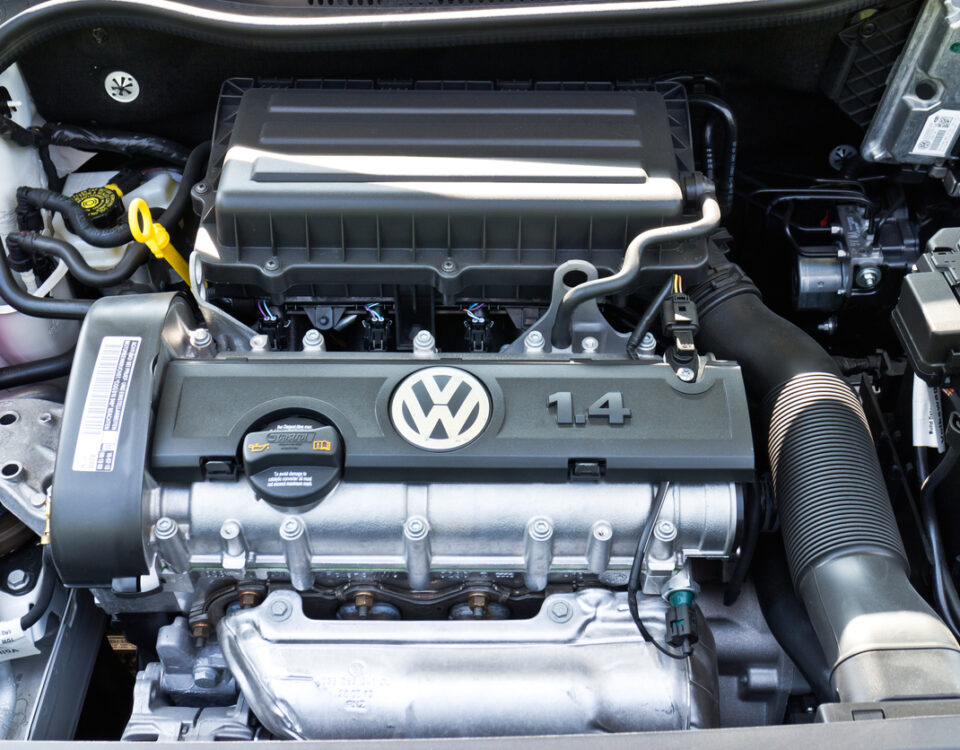Do Fuel Treatments Clean Your Engine?
What Is Fuel Treatments?
Fuel treatments work by adding a product or substance to petrol or diesel fuel to enhance its quality and performance. These treatments can include a variety of additives such as detergents, lubricants, and octane boosters. The purpose of these additives can vary, from cleaning and lubricating the fuel system to removing water and contaminants or improving the fuel’s octane rating.
One of the main advantages is that it can enhance the performance and efficiency of an engine. Detergents, can help to clean the fuel injectors and combustion chamber, resulting in improved power and efficiency. Similarly, lubricants can reduce friction and wear on the engine’s moving parts, thus prolonging the engine’s lifespan.
Fuel treatment can improve the stability and storage life of fuel. Additives that contain antioxidants, for example, can prevent fuel from breaking down and forming harmful deposits in the engine. Anti-gelling agents can prevent fuel from solidifying in cold temperatures, ensuring that the engine starts and runs smoothly in cold weather.
The fuel treatment not only help in improving performance and stability of your engine, fuel treatments can be used to improve the fuel’s octane rating, which can prevent engine knocking, pinging and other forms of abnormal combustion. This is important for high performance engines that need a higher-octane fuel to operate safely and efficiently.
How Do Fuel Additives Work?
Fuel additives work in a variety of ways, depending on the type of additive and the specific application. Some of the ways that fuel additives can work include:
- Cleaning: Some fuel additives, such as detergents, can help clean fuel injectors and carburettors, keeping them in good working condition.
- Improving combustion: octane boosters and cetane improvers, can help improve combustion and increase engine performance.
- Reducing emissions: lubricity improvers and water dispersants, can help reduce emissions and protect the environment.
- Preventing corrosion: Some anti-gel additives and biocides, can help prevent corrosion and other problems caused by microorganisms and water accumulation.
- Stabilizing fuel: stabilizers can help prevent gasoline from going stale and evaporating, which helps keep fuel systems from clogging.
- Improving fuel economy: octane boosters can
- improve fuel economy by increasing the efficiency of combustion within the engine.
- Enhancing the performance: octane boosters can enhance the performance of the engine by increasing the octane rating of gasoline.
- Protecting the engine: lubricity improvers, can protect the engine by improving the lubrication of diesel fuel.
Mechanical Problems That Fuel Treatments Can Fix
Mechanical problems can be a major headache for any vehicle owner. From engine issues to transmission trouble, these issues can cause not only inconvenience, but also added expenses. However, the good news is that many mechanical problems can be resolved with proper fuel treatments. Some of the problems that fuel treatments can fix include:
- Improving fuel efficiency and combustion
- Preventing fuel system corrosion
- Reducing engine knock and ping
- Cleaning carbon deposits and clogged fuel injectors
- Stabilizing fuel and preventing gum, varnish, and other deposits
- Improving fuel stability in storage
- Improving engine performance and reducing emissions
- Protecting fuel system components from wear and tear
The Most Common Types of Fuel Treatment
There are several types of fuel treatments available, each with their own specific benefits. The most common types of fuel treatment include:
- Fuel stabilizers: keeps fuel fresh for an extended period of time, preventing it from breaking down and becoming stale. This can help to prevent problems such as poor engine performance and difficulty starting the vehicle.
- Fuel injector cleaners: Fuel injector cleaners are designed to clean and protect fuel injectors, improving their performance and efficiency. They help to remove build up and deposits on the injectors, which can cause poor engine performance and increased emissions.
- Octane boosters: Increases the octane rating of your fuel, which can help to improve engine performance and reduce knocking and pinging.
- Fuel system cleaners: designed to clean the entire fuel system, removing build-up and deposits that can cause poor engine performance and increased emissions.
- Cold flow improvers: improves the flow of fuel in cold temperatures, which can help to prevent problems such as poor engine performance and difficulty starting the vehicle in cold weather.
- Detergent additive: detergent additives can help you by cleaning the fuel system and keeping it free of debris and particulate matter.
Not all fuel treatments are suitable for all different vehicle types or fuels, so you must remember to check the product label or consult with a mechanic before using a fuel treatment.
Which Fuel Additives Are Available?
Fuel additives are substances added to fuel to improve its properties and performance. These additives serve a variety of purposes, including cleaning engine parts, reducing emissions, stabilizing fuel during storage, and improving fuel efficiency. There are several types of additives available on the market, each designed to address specific issues and improve specific aspects of fuel performance. The common types of fuel additives available include:
- Detergents – Clean fuel injectors and intake valves, improve engine performance and prevent deposits.
- Stabilizers – Maintain fuel stability during storage, prevent gum and varnish deposits.
- Octane boosters – Improve fuel octane rating, reduce engine knock and ping.
- Corrosion inhibitors – Prevent fuel system corrosion, protect against rust and oxidation.
- Cetane improvers – Improve diesel fuel ignition quality, increase engine power and reduce emissions.
- Lubricants – Reduce engine wear, enhance fuel lubrication and protect fuel pumps.
- Dyes – Trace the origin of fuel in tax and customs purposes.
- Biocides – Kill microbes and prevent growth of algae in fuel systems.
If you decide to utilize these in your car as part of your regular upkeep, be sure to read the label carefully and follow the directions carefully.
Application of Treatments
Fuel treatments are typically added during refuelling, either at a fuelling station or by using a fuel additive dispenser. The recommended amount of fuel treatment varies depending on the product and the specific needs of your vehicle, so it’s important to follow the manufacturer’s instructions carefully. Some fuel treatments are added to the fuel tank before refuelling, while others are added directly to the fuel nozzle during refuelling. Fuel treatments can also be added to the fuel tank in concentrated form, which allows for a more precise application of the product. Regardless of the method of application, fuel treatments are designed to work continuously, providing benefits to your vehicle over time as you continue to use treated fuel.
In addition, fuel treatments can be used in a variety of settings, including:
- Automotive: Fuel additives are commonly used in gasoline and diesel vehicles to improve performance, fuel efficiency, and engine longevity.
- Industrial: Fuel additives are used in industrial equipment such as generators, boilers, and heavy-duty vehicles to improve performance and reduce maintenance costs.
- Marine: Fuel additives are used in boats and ships to improve performance, reduce emissions, and protect against corrosion.
- Aviation: Fuel additives are used in aircraft to improve performance and reduce emissions.
- Power generation: Fuel additives are used in power generation facilities to improve efficiency and reduce emissions.
- Agriculture: Fuel additives are used in tractors and other farming equipment to improve performance and reduce maintenance costs.
- Mining: mining equipment relies on fuel treatments to improve performance and reduce maintenance costs.
- Oil and gas: used in oil and gas production to improve performance, reduce emissions, and protect against corrosion.
Different types of fuel additives are formulated to address different issues, so it’s important to use the right type of additive for a specific application. Also, it’s important to check with the manufacturer of the equipment before adding any fuel treatment to ensure compatibility and effectiveness.
How Effective Are Fuel Treatments?
The effectiveness of fuel treatments can vary depending on the type of treatment and the specific application. Some fuel treatments, such as detergents, can be highly effective at cleaning fuel injectors and carburetors, and improving engine performance. Other fuel treatments, such as octane boosters, can be effective at increasing the octane rating of gasoline and improving fuel efficiency.
However, not all fuel treatments are effective, and some may even do more harm than good. Some fuel treatments may not be compatible with certain types of engines or fuels, and can cause damage if used improperly. Some fuel treatments may also not be necessary or beneficial if the fuel is already of good quality and the engine is in good working condition.
Some fuel additives may not be effective, or may only provide minimal benefits, especially if the engine is already in good condition and the fuel is of good quality. Additionally, some fuel additives may not be approved for use in certain locations or may not be legal to use. Therefore, it’s important to research the fuel additive, check with the manufacturer of the equipment before adding any fuel treatment and ensure compatibility and effectiveness.
The Results of Studies on Fuel Additives
In 2011, the EPA published a thorough research in which it examined more than 100 fuel efficiency-related items. Neither of the goods truly met their promises. It’s crucial to remember that fuel additives stop debris from accumulating in your fuel tank, fuel line, and—most significantly—in your fuel injectors. Carbon deposits could accumulate over time in the fuel injectors of your car, blocking or clogging the injectors. As a result, the combustion chamber receives less fuel, lowering your car’s fuel efficiency. Due to the tight specifications of fuel injectors, even minor carbon build-up could have an impact on your motor’s efficiency. To assist postpone or avert a costly repair down the road, fuel additives are a wonderful addition for preventative auto upkeep on your injectors.
Limit The Use Of Fuel Additives.
For optimal performance, you should adhere to the directions on the fuel additive. Avoid using too many fuel additives since doing so can damage the sensors and instruments in your car.
Are Fuel Additives a Good Investment?
Fuel additives can be a good investment for some people, but it depends on the specific circumstances. Some fuel additives can be highly effective at cleaning fuel injectors and carburetors, improving engine performance, and increasing fuel efficiency. These additives can lead to significant cost savings in the long run by reducing maintenance costs and extending the life of the engine.
However, not all fuel additives are effective, and some may even do more harm than good. Some fuel additives may not be compatible with certain types of engines or fuels, and can cause damage if used improperly. Additionally, some fuel additives may not be necessary or beneficial if the fuel is already of good quality and the engine is in good working condition.
conduct research on the fuel additive and check with the manufacturer of the equipment before adding any fuel treatment to ensure compatibility and effectiveness. Additionally, it’s important to consider the costs of the additive and compare it to the potential benefits, and also consider the location or the legal regulation of using that additive.
In general, fuel additives can be a good investment for people who want to improve engine performance, increase fuel efficiency, or reduce maintenance costs. But it’s important to make sure that the additive is compatible with the equipment and will provide real benefits before making a purchase.
Summing Up
In conclusion, fuel treatments are substances added to fuel to enhance its quality and performance. These treatments serve a variety of purposes and can fix a number of mechanical problems. It is always important to check the product label or consult with a mechanic before using a fuel treatment, as not all are suitable for all different vehicle types or fuels. For more information about the right treatment for your vehicle, contact us.


